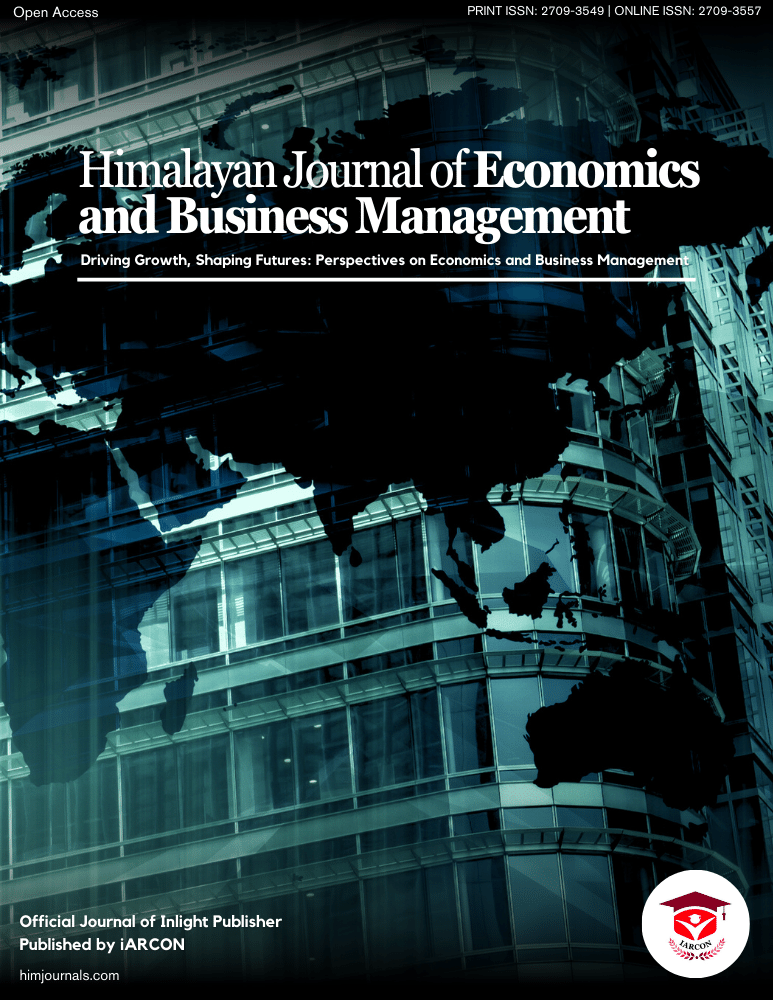Publication Ethics Policy
The Himalayan Journal of Economics and Business Management is committed to upholding the highest standards of publication ethics. Our publication ethics policy ensures the integrity, credibility, and transparency of the research we publish.
Below is a detailed discussion of the key components of our publication ethics policy:
1. Authorship and Attribution:
- Authorship credit is based on substantial contributions to the conception, design, execution, or interpretation of the research.
- All individuals who have made significant contributions to the research are listed as authors.
- Honorary authorship, gift authorship, and ghostwriting are strictly prohibited.
2. Plagiarism and Originality:
- We prohibit the submission of plagiarized manuscripts, including verbatim copying or paraphrasing without proper attribution.
- Authors are required to ensure the originality of their work and appropriately cite sources when using others' ideas, text, or data.
- Manuscripts undergo thorough plagiarism screening, and any instances of plagiarism are addressed with appropriate action, including rejection or retraction.
3. Data Integrity and Reproducibility:
- Authors are responsible for the accuracy, integrity, and reproducibility of the data presented in their manuscripts.
- Fabrication, falsification, or manipulation of data is strictly prohibited.
- Authors should provide sufficient details and documentation to allow others to reproduce their findings.
4. Conflicts of Interest:
- Authors, reviewers, and editors are required to disclose any potential conflicts of interest that could bias their judgement or compromise the integrity of the publication.
- Conflicts of interest may include financial relationships, personal connections, or competing professional interests.
- Conflicts of interest are transparently disclosed and managed to ensure impartiality and objectivity in the review and publication process.
5. Ethical Treatment of Subjects:
The Journal follows an ethical code while publishing the study of the subjects involved. Research involving human or animal subjects must adhere to ethical principles aligning with the below mentioned regulatory requirements.
WMA Declaration of Helsinki
Authors should obtain informed consent from human participants and ensure that the welfare and rights of research subjects are protected.
ETHICAL PRINCIPLES FOR MEDICAL RESEARCH INVOLVING HUMAN SUBJECTS
Studies involving animal subjects should follow established guidelines for humane treatment and ethical conduct.
6. Corrections and Retractions:
- We are committed to promptly address errors, inaccuracies, or ethical concerns that might be identified in the published articles.
- Corrections are proactively issued for minor errors. However, retractions are reserved in case of serious ethical violations or inaccuracies that invalidate the research findings.
- Corrections and retractions are clearly communicated to readers in a transparent manner, ensuring the Journal’s accountability.
7. Editorial Independence and Integrity:
- Editors operate with editorial independence, free from external influences or conflicts of interest.
- Editorial decisions are based solely on the scientific merit and quality of the research, without bias or favoritism.
- Editors are committed to upholding the highest standards of integrity, transparency, and fairness in all editorial practices.
8. Transparency and Accountability:
- We maintain transparency throughout the publication process, providing clear communication to authors, reviewers, and readers.
- Editorial decisions and policies are communicated openly, and feedback from stakeholders is solicited and addressed promptly.
- We hold ourselves accountable to the academic community and strive to foster a culture of transparency, integrity, and trust.

